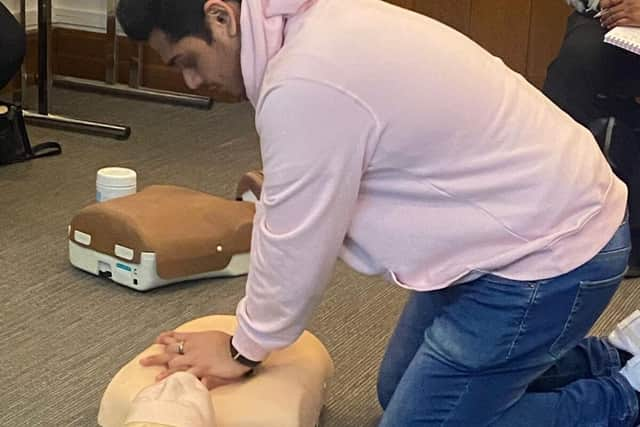Study reveals women less likely to receive CPR in public than men
and live on Freeview channel 276
The research found that women are significantly less likely to receive cardiopulmonary resuscitation (CPR) from bystanders in public areas compared to men.
The research draws upon records from cardiac arrests outside of hospitals in Canada and the US between 2005 and 2015, encompassing over 39,000 patients.
Advertisement
Hide AdAdvertisement
Hide AdOf the evaluated cases, only about half of the patients received CPR from a bystander.


When incidents occurred in public locations, women, irrespective of their age, were found to be less likely to receive this life-saving procedure.
Furthermore, the likelihood of receiving CPR decreased with age for both genders, though the decline was more pronounced for men.
Alexis Cournoyer, a contributing author of the study, commented on the alarming findings: “Our study shows that women experiencing a cardiac arrest are less likely to get the CPR they need compared to men, especially if the emergency happens in public.
"We don’t know why this is the case.”
Advertisement
Hide AdAdvertisement
Hide AdThe study conjectures potential concerns about physical contact without consent, the fear of causing harm, or misconceptions about women's likelihood of experiencing cardiac arrests.
Douglas Mcshane, training director at CPR Training, said: “These findings are deeply concerning. CPR is a crucial skill that can save lives, and it's essential that bystanders feel equipped and confident to administer it regardless of gender.
"At CPR Training, we emphasise the importance of understanding and recognizing cardiac arrest situations and acting promptly. This research underscores the need for broader education on the importance of providing immediate care and dispelling myths around gender differences in emergencies.”